Charcoal vs Gas vs Pellet vs Electric: which type of barbecue is best for you?
These are the best things to look for when choosing the right barbecue for your needs

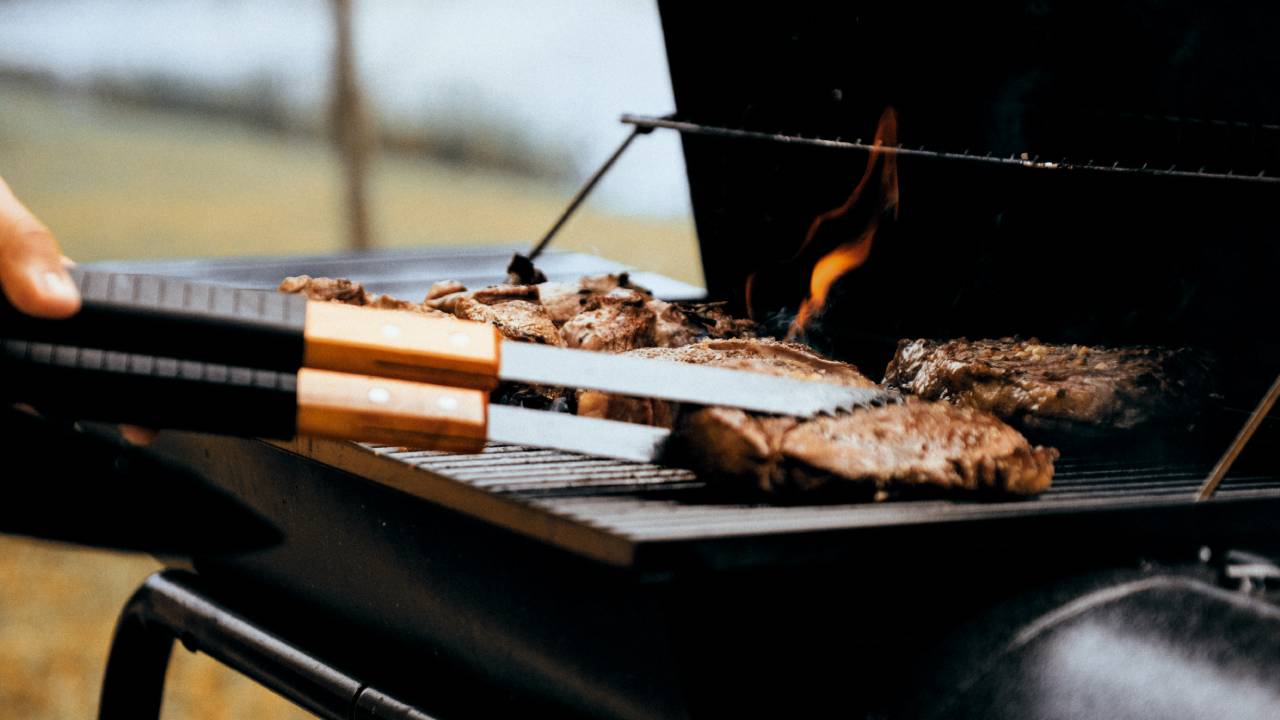
Get all the latest news, reviews, deals and buying guides on gorgeous tech, home and active products from the T3 experts
You are now subscribed
Your newsletter sign-up was successful
Who doesn’t love a barbecue? After all, there’s something about cooking outdoors on a warm sunny day that just feels right. Perhaps it taps into our Stone Age ancestry or brings back memories of happy days, chowing down on a crispy-skinned drumstick, a baby-back rib or a perfectly seared steak kebab. Either way, most barbecue sessions stick in the memory... but which should you choose?
Today, we have a huge selection of fancy barbecues at our disposal – from small electric balcony models to outdoor kitchen behemoths capable of feeding the 5,000. However, choosing the right type of barbecue isn’t as cut and dried as it used to be when everything ran on charcoal and we had no choice in the matter. In fact, today we have four completely different barbecue fuels to choose from – charcoal, gas, pellets and electricity – and they all have their pros and cons.
To make this conundrum easier to swallow, we'll look at each fuel in detail so you have an easier time making a decision. Barbecue fuel choice is mostly subjective so what works for you won’t necessarily work for someone else.
Hopefully by the end of this article you will have gleaned enough information to make the right decision when it comes time to choosing your next barbecue. Chances are you’ll find just what you’re looking for in our guides to the best barbecues, best gas barbecue, best smoker and best electric BBQ grill.
So roll up your sleeves, get your apron on, grab you tongs and let’s get down to the nitty and the gritty.
Charcoal BBQs
Pros and cons of charcoal barbecues
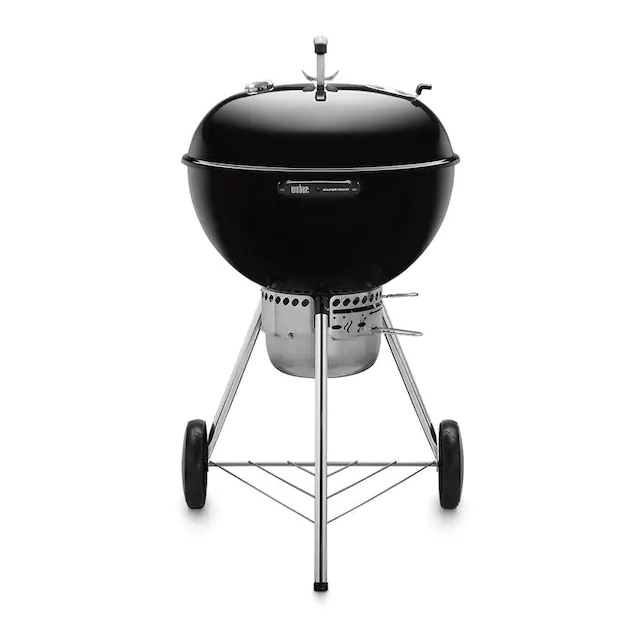
Weber Mastertouch charcoal barbecue
Let’s begin with the original BBQ fuel, the one most professional chefs will say is the most authentic way to barbecue, no questions asked. They’re right to some degree, especially when it comes to searing and grilling, whether it’s indirect with the lid on or fast-and-furious brazier style with the lid off. Charcoal is also a top fuel for low-and-slow smoking.
Best charcoal barbecue brands: Weber, Napoleon, Masterbuilt, Big Green Egg, Char-Broil and Kamado Joe.
Get all the latest news, reviews, deals and buying guides on gorgeous tech, home and active products from the T3 experts
PROS
- Charcoal barbecues are almost always the cheapest type of BBQ to buy
- Very easy to assemble
- Charcoal BBQs are perfect for high-heat searing
- A great choice for general grilling
- Charcoal always produces an authentic outdoor flavour
- It satisfies our primal instincts for cooking over a hot flame
- Charcoal is quite easy to obtain at the last minute
- Charcoal BBQs are very easy to clean
CONS
- Charcoal takes ages to reach optimum grilling temperature – up to 40 minutes and longer if using briquettes
- Charcoal grilling is a much more hands-on affair
- Temperatures are difficult to regulate and flare-ups are common
- Charcoal BBQs are expensive to run. Figure in about 1kg of charcoal per guest, at £1.90 per kilo
- Charcoal is the least environment friendly of all BBQ fuels. It involves tree felling, slow burning, excess fumes and expensive transport costs
- Charcoal barbecues are banned at most campsites and some neighbourhoods. They are not really suitable for balcony use either
- Charcoal isn't an especially safe fuel to use since it creates an open flame that can flare up from time to time
Gas BBQs
Pros and cons of gas barbecues

Napoleon Rogue gas barbecue
The gas grill was invented in the late 1930s and has become one of the most popular types of barbecue for convenience and ease of use. Many BBQ connoisseurs will say that gas cannot compete with charcoal for authentic barbecue flavour. However, given that barbecue flavour is essentially created by hot fats and juices dripping on to a high heat source that creates smoke in the process, is there really that much difference between fats dripping onto a bed of odourless grey charcoal and a sheet of piping hot metal? The jury’s still out on this one. One thing’s for certain, gas BBQs are really fast to heat up and they're very easy to control.
Best gas barbecue brands: Napoleon, Weber, Char-Broil, Everdure and Broil King.
PROS
- Outright convenience without any faff
- Gas grills heat up quickly, usually within 10 minutes
- Temperatures in a gas grill are very easy to regulate
- Multi burner models provide extra heat control
- Most gas grills can easily reach searing temperatures
- Gas is safer than charcoal and therefore allowed on most campsites
- Propane gas bottles are relatively easy to get hold of from your local DIY outlet
CONS
- Quite expensive to buy
- Very tricky to assemble
- Many BBQ aficionados will argue that gas doesn’t provide the same level of barbecue flavour
- Propane gas is expensive to buy and even more so if purchasing for the first time since you will also need to pay for the initial hire of the bottle
- Although cleaner than charcoal, gas is still a fossil fuel and therefore damaging to the environment
- Some gas barbecues can be tricky to clean
Pellet BBQs
Pros and cons of pellet barbecues
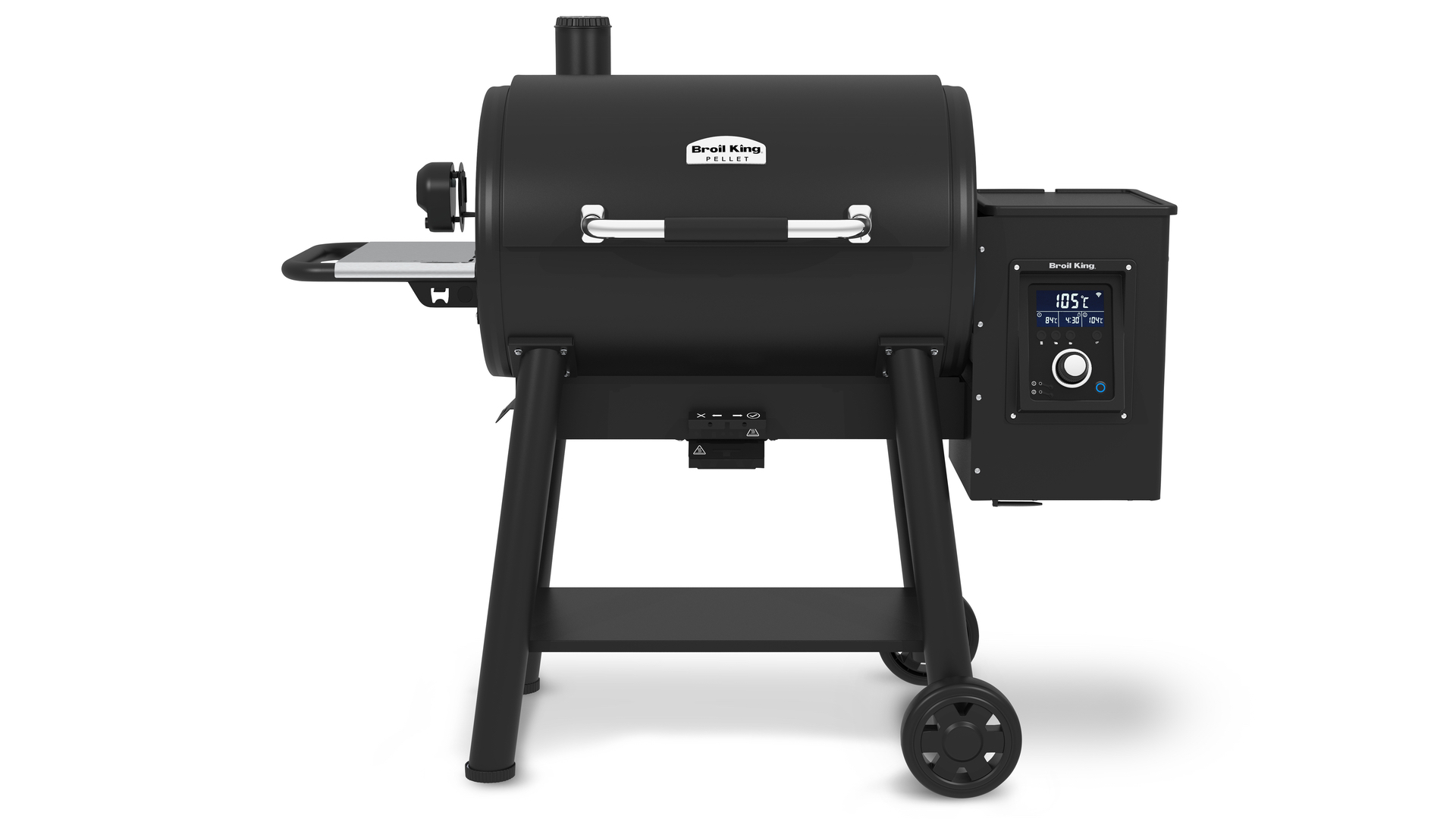
Broil King Regal 500 pellet grill
Pellet grilling has become more popular over the years, especially in the US where they love their smoked meats. This is because pellet grills use differently flavoured wood pellets that burn in a fire pot to create an authentic campfire smell that infuses food with rich smokiness. Since pellet grills are computer controlled, you can set a temperature and it will stay that way for the duration of the cook. Pellet grills are especially popular for low-and-slow smoking. In a nutshell, if you struggle with charcoal or gas, a pellet grill will revolutionise your outdoor cooking. However, they are generally not good for searing. And they’re expensive, too.
Best pellet grill brands: Traeger, Broil King, Weber and Pit Boss.
PROS
- Pellet grills produce real campfire flavour
- Simple to use
- Little interaction required
- Difficult to burn food
- Pellet grills almost always produce reliable results
- Very easy to assemble
CONS
- Not suitable for searing steaks
- Pellet grills can be expensive to run
- Requires an electricity outlet for the computer interface, pellet auger and fan
- They are invariably extremely heavy
- Very expensive to buy
- Awkward to clean
Electric BBQs
Pros and cons of electric barbecues
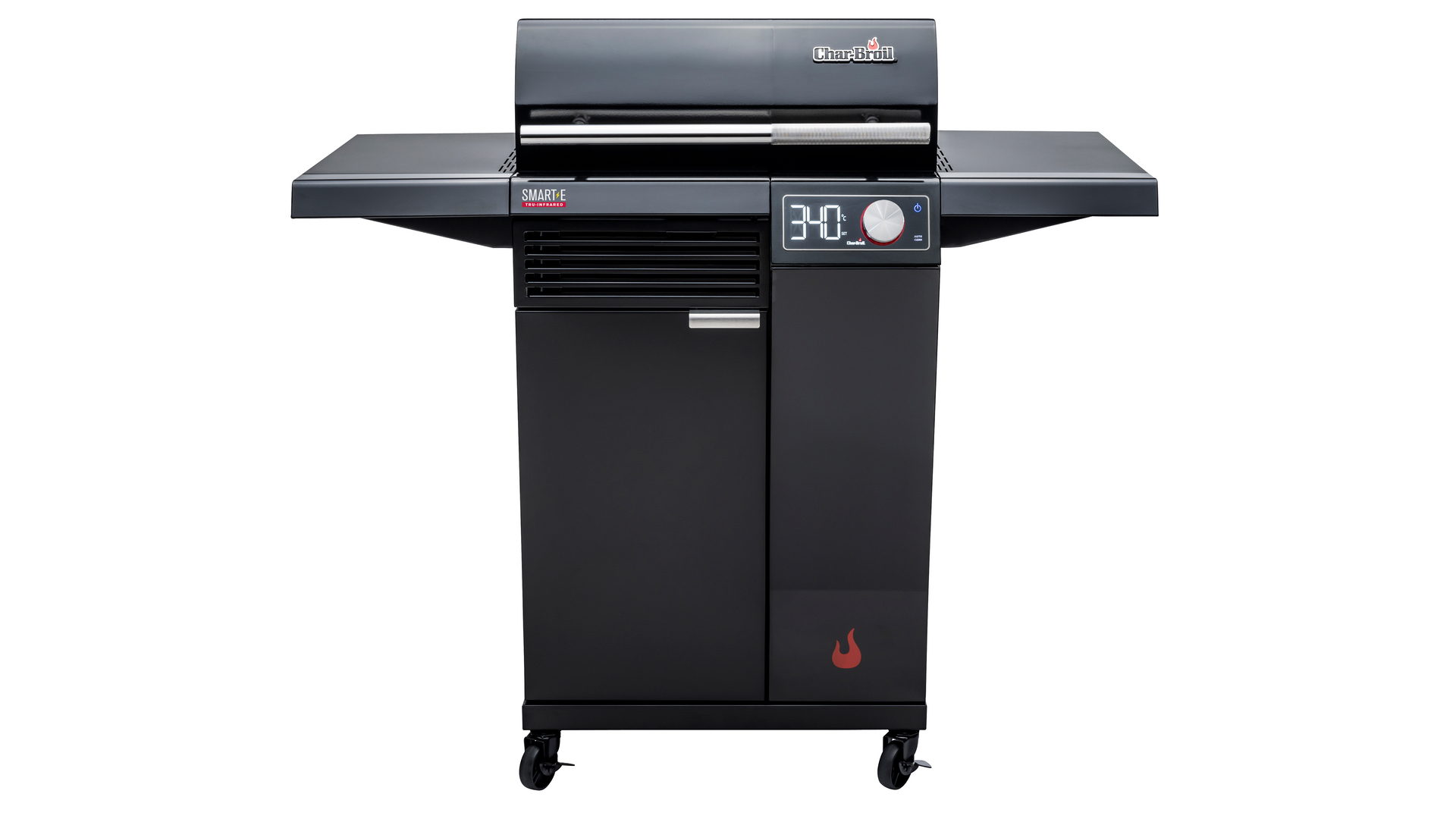
Char-Broil Smart-E electric grill
And so we come to the most recent type of fuel that may one day – in the distant future – become the fuel du jour for most barbecues. At the moment, the vast majority of electric grills are of the portable kind so they are a perfect choice for balconies and small patios. And since they don’t produce a naked flame and theoretically run on an endless supply clean energy, they are both safer to use and better for the environment. They are also cheapest of all barbecues to run.
Best electric barbecue brands: Weber, Char-Broil, Ninja and Napoleon.
PROS
- Ease of use and outright convenience
- They never run out of fuel
- Good temperature range
- Perfect for balcony use
- Safer to use
- Better for the environment
- They heat up quickly
- Electric grills are typically the cheapest to run – about 60p an hour
- Easy to assemble
CONS
- Electric grills require a suitable outdoor mains outlet
- Most models are typically smaller in size and better suited for couples
- Some models perform better than others
- Very few models to choose from but that may soon change
- Electric grilling somehow doesn’t feel as authentic as charcoal, pellets or even gas
How to choose the best barbecue for you
Best type of barbecue for authentic flavour
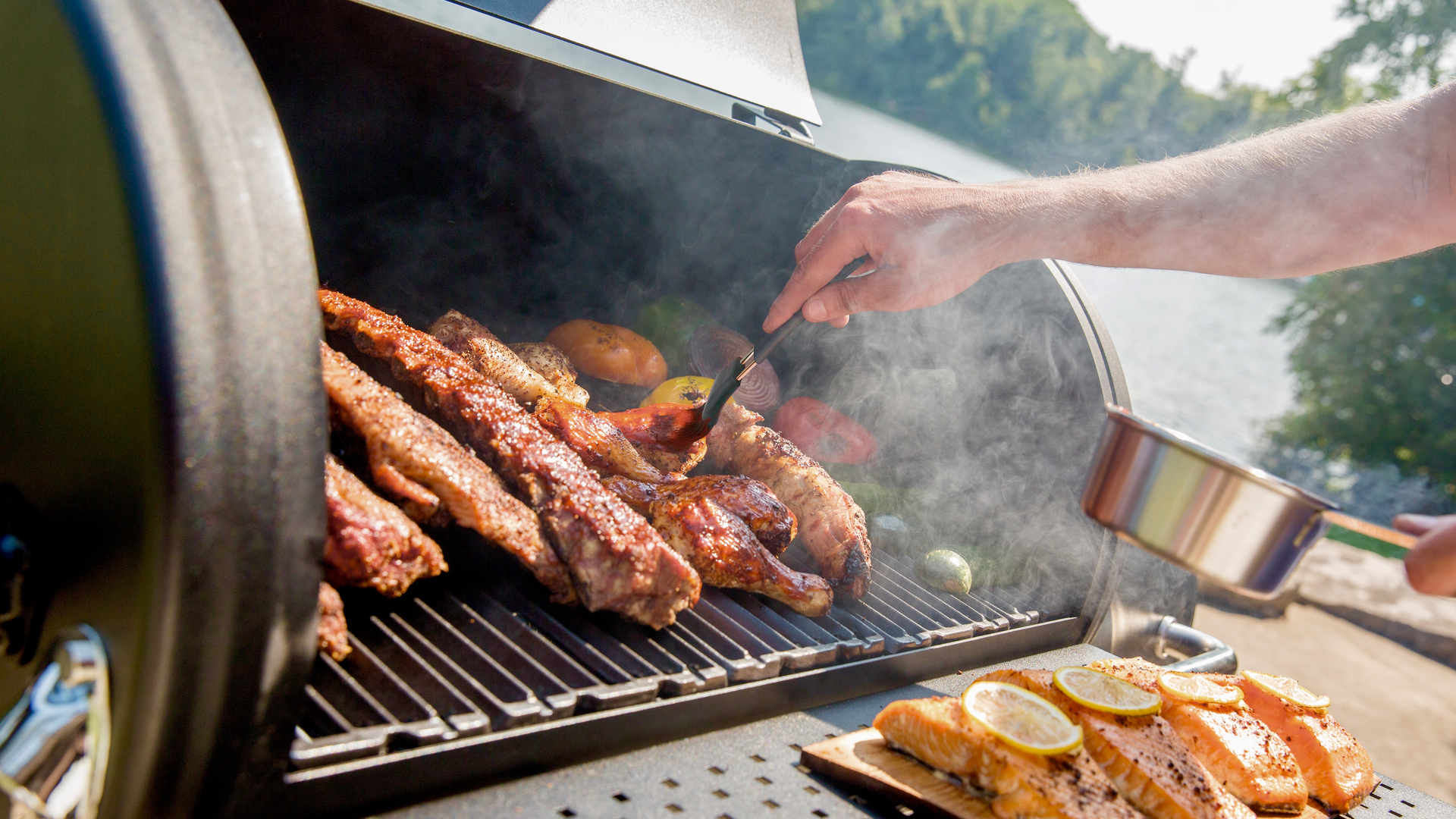
If what you want is the ultimate in authenticity with pure outdoor barbecue flavour to match, pellets or charcoal are the fuels for you. Charcoal barbecues are cheapest to buy and generally cheaper to run than pellet grills. They are brilliant for general grilling and superb at searing steaks over high temperatures. But they are also much harder to keep under control.
By contrast, pellet grills are a hundred times easier to use and they will always produce food that’s infused with a deep but subtle campfire smokiness that isn’t as easy to attain using charcoal. Also, it’s actually quite difficult to burn food on a pellet grill because it relies on indirect heat as opposed to charcoal where the food is invariably placed above or near to red hot coals.
Best type of barbecue for smoking
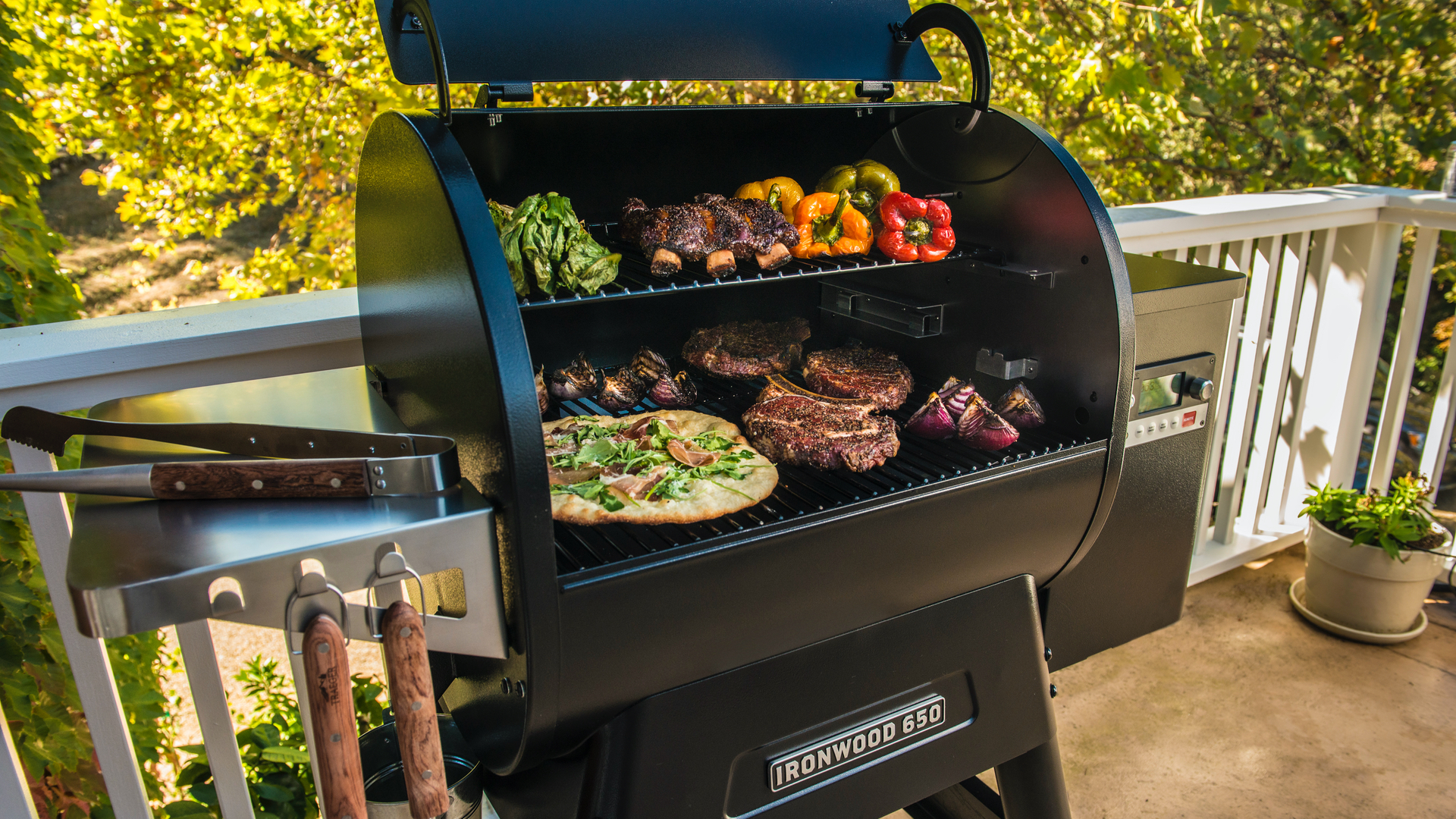
Although some charcoal barbecues from the likes of Masterbuilt and Big Green Egg are designed for low-and-slow smoking, they can’t hold candle to the pellet grill when it comes to ease of use. With today’s pellet grills you can set a low temperature of 105˚C and it will stay at that temperature for hours – just like an indoor oven. In fact, as long as the pellet hopper has enough fuel, a pellet grill will easily complete a seven-hour smoking session without breaking into a sweat. It’s just one reason why pellet grills have taken the US by storm. Another reason is that they smoke meat to such succulent perfection – replete with a thick burnt outer ‘bark’ – that once you’ve tried a pellet grill, there’s simply no turning back.
Best type of barbecue for searing
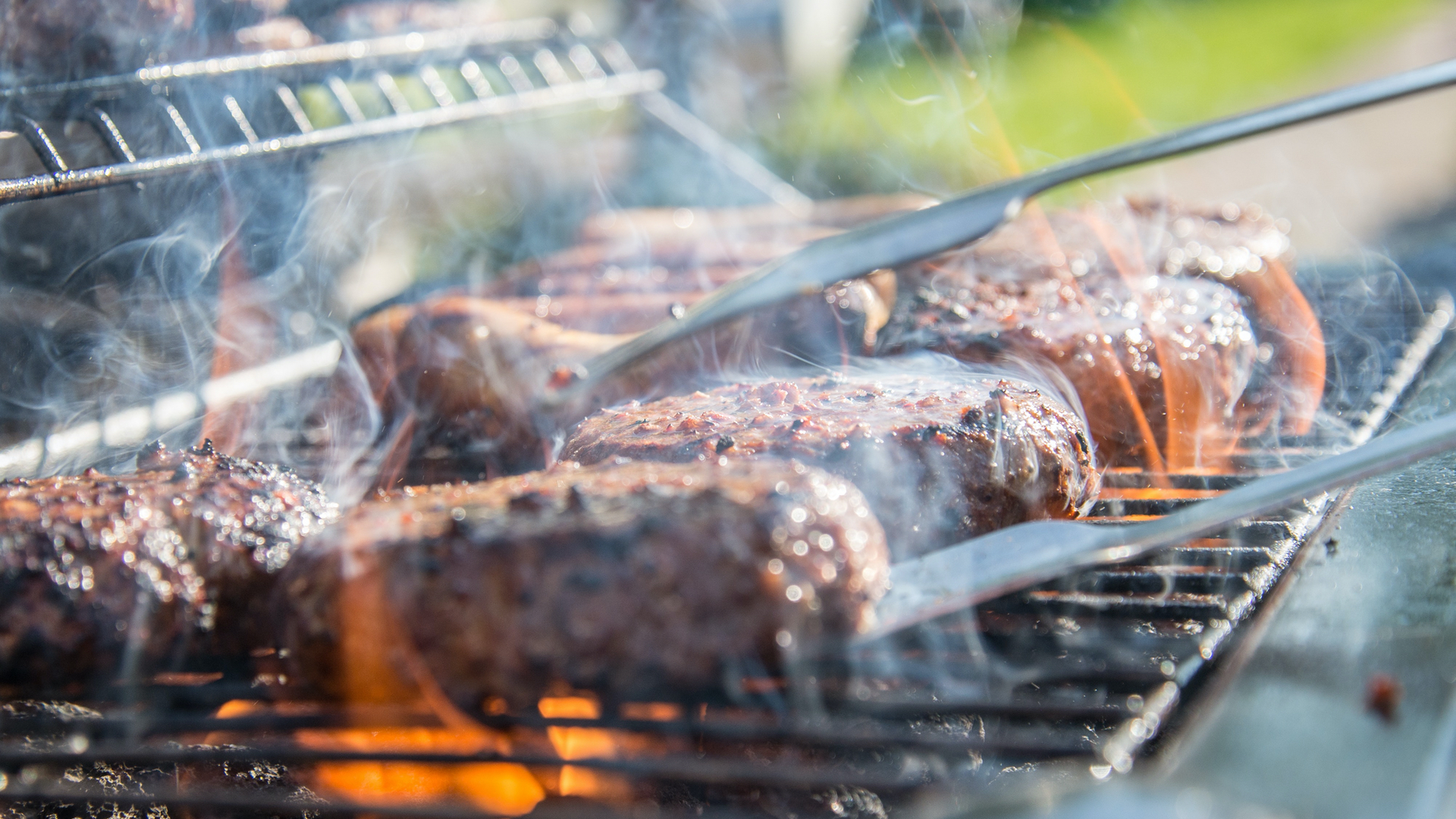
When it comes to searing meat or adding char marks to vegetables, the charcoal barbecue rules the roost, though the same can be said for the gas barbecue, too. What you need when searing is a bed of white hot charcoal beneath the grate and a temperature of around 250˚C (around 480˚F) – something any charcoal grill or any decent gas barbecue is capable of. However, the searing process is quite short lived and needs to be followed up with a slower cook at a lower temperature (or vice versa if reverse searing). Hence, be sure to lay the charcoal bed to one side so there is an area where the meat can be cooked more indirectly.
In some ways it’s easier using gas to sear because you can either lower the heat quite quickly or, if you’re using a two-burner model, simply move the meat to the area with a lower temperature. If using an electric barbecue, your only option is to remove the meat, reduce the temperature and put it back on again. Most pellet grills aren’t suitable for searing meat though Pit Boss has a clever system on their models which enables steaks to be seared directly over the fire pot’s naked flame.
Best type of barbecue for convenience
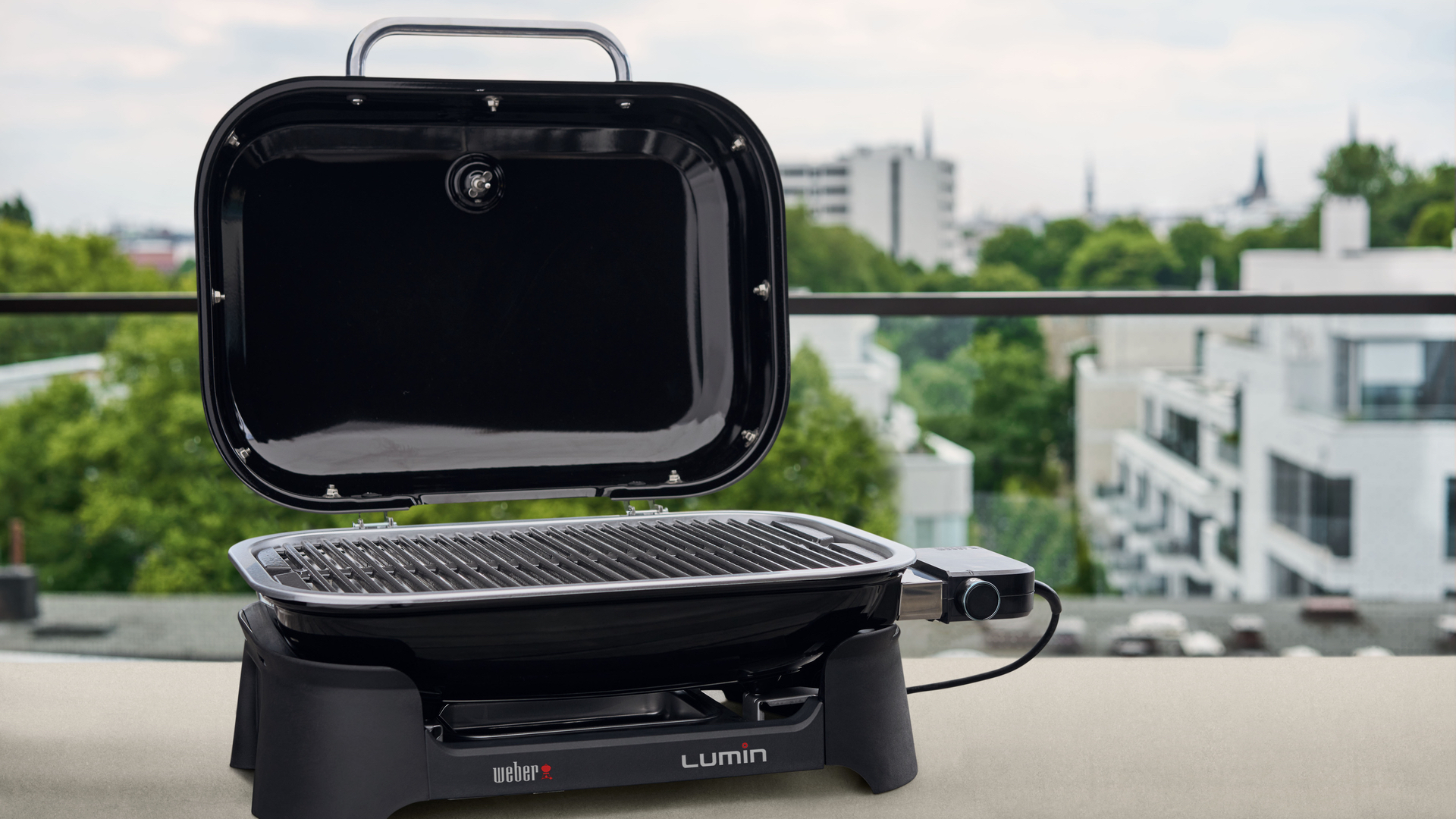
Two clear winners here – electricity and gas. Electricity is the most convenient fuel of all because it is permanently on tap and requires no shopping expeditions or worse, being caught on the hop because you forgot to buy more charcoal or a fresh gas bottle and all the shops are shut. With an electric grill you simply turn it on and grill till the cows come home.
However, gas barbecues are just as easy to use and they're mostly hassle free with no cables or bags of charcoal to wrestle with. Simply light the burners and grill.
Best type of barbecue for reliable cooking results
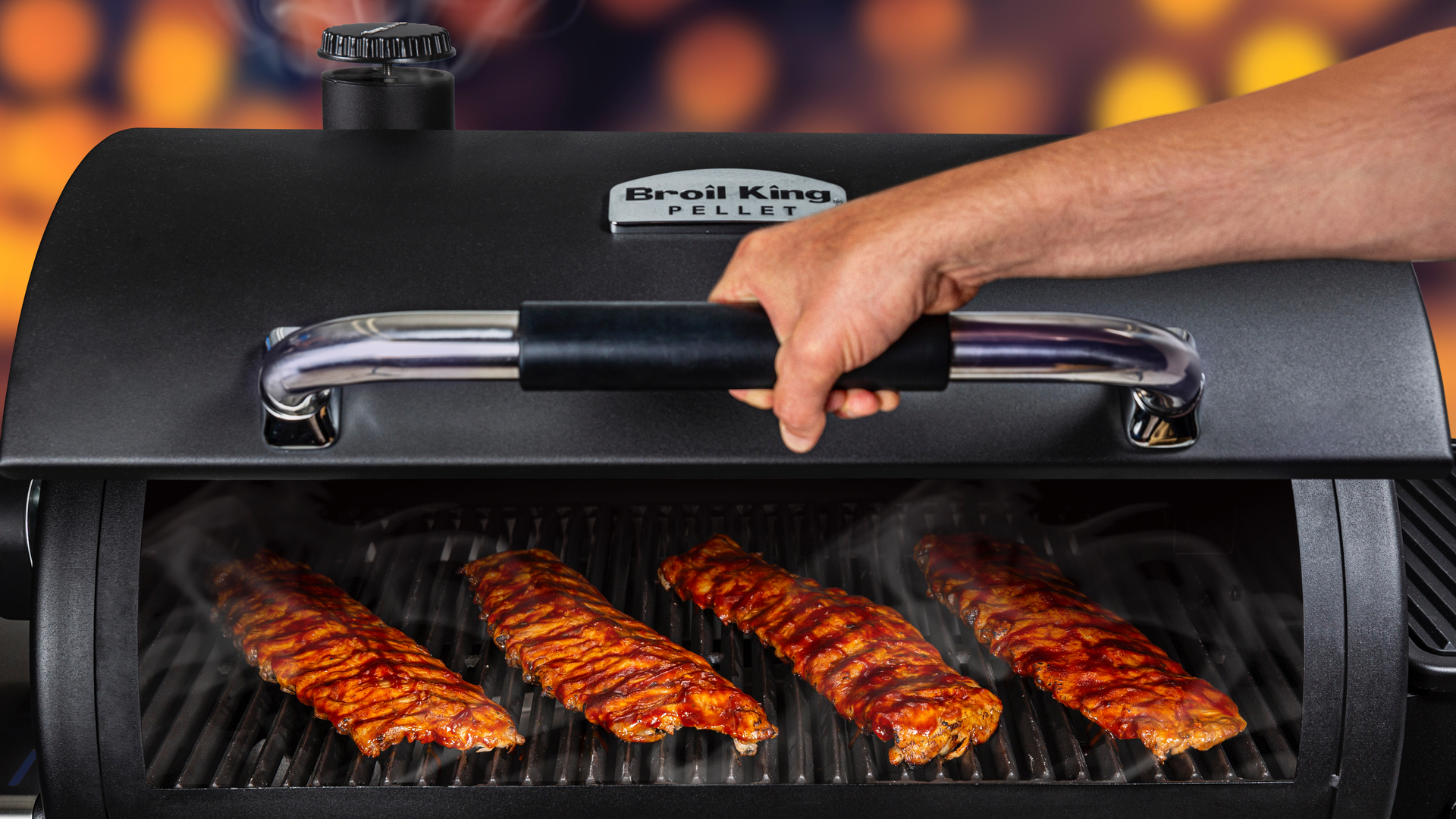
It’s very easy to burn food on charcoal and almost as easy to burn it on gas and electric, too. However, if you follow the number one rule of grilling – if you’re lookin’, it ain’t cookin’ – and keep the lid closed all the time, you will find it hard to burn anything on a pellet grill.
I use my Broil King Regal 500 pellet grill more than any other because it runs itself so efficiently I can entertain my guests without constantly running back and forth to check on it. I simply set a temperature, slap on the goodies and retreat. I even have an app that keeps me posted on temperatures and cooking times. If you want an easy time at the barbecue and like to spend time with your guests instead of frantically flipping food all the time, the pellet grill is the one for you.
Best type of barbecue for low running costs

Believe it or not, electric grills are cheapest to run – about 60p an hour for an average 2.4kW model. Compared to pellets (around £25 for 9kgs), charcoal (around £19 for 10kgs) and gas (£35 for 5kgs), electricity generally works out cheaper per barbecue session. And it never runs out of fuel.
Looking for a great recipe to go with your new barbecue? Head over to our guide to the best BBQ recipes to make on charcoal, gas, pellet & electric grills
Derek (aka Delbert, Delvis, Delphinium, Delboy etc) specialises in home and outdoor wares, from coffee machines, white appliances and vacs to drones, garden gear and BBQs. He has been writing for more years than anyone can remember, starting at the legendary Time Out magazine – the original, London version – on a typewriter! He now writes for T3 between playing drums with his bandmates in Red Box (redboxmusic).
